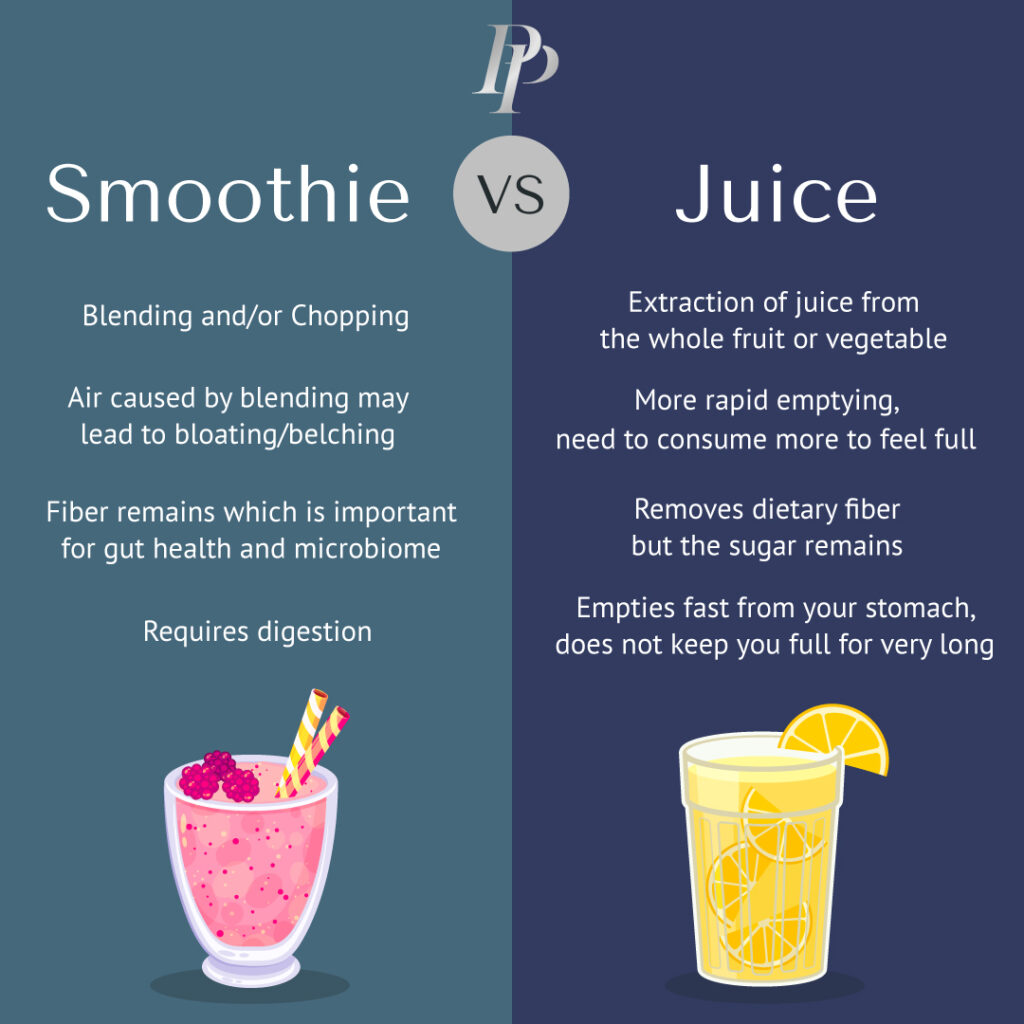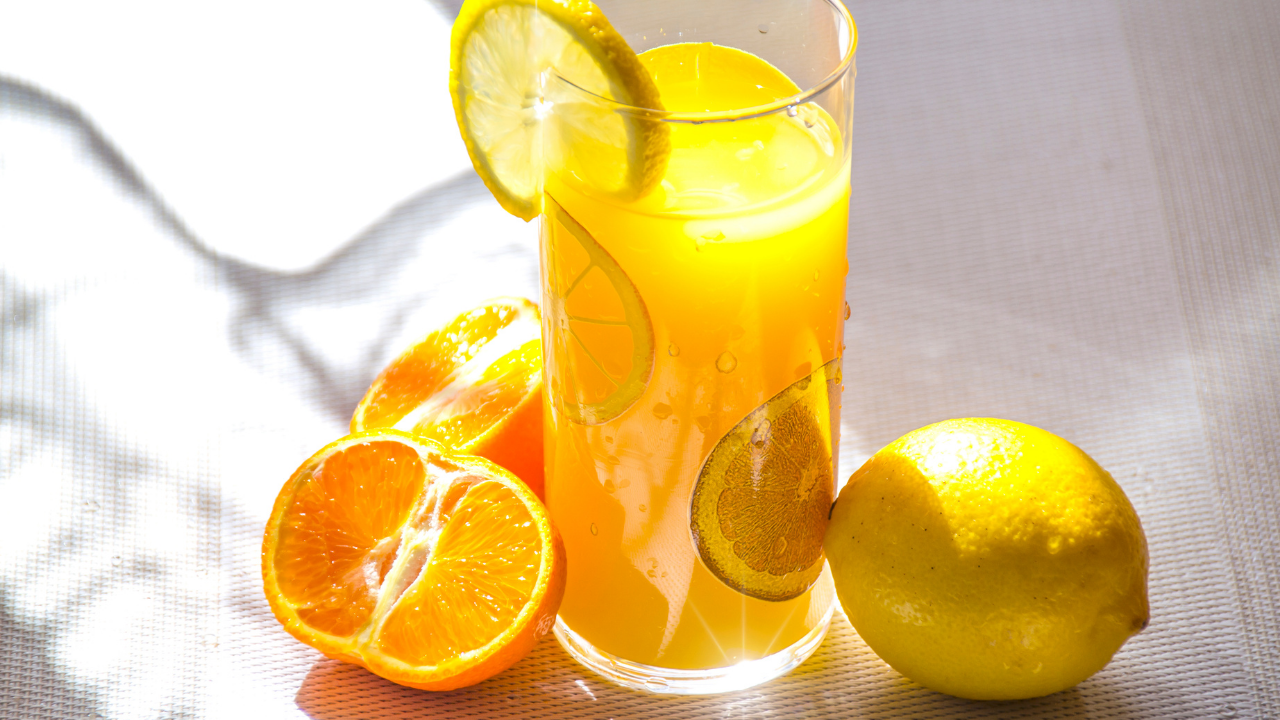What is juicing?
Juicing is the act of extracting juice liquid from fruits and/or vegetables. There are manual and electric options which separate the juice from the pulp. Two of the main types of electric juices include centrifugal juicers and masticating juicers. A centrifugal juicer uses a higher speed, quick, less expensive, but because it uses a high RPM, the process introduces more heat into the juice which can influence nutrients, enzymes, and cause oxidation soon after making it. A masticating juicer, also known as “cold-press” has a slower motor speed, less oxidation so it can last longer, however, is more expensive. Electric juicers still provide some of the insoluble water i.e. pulp in the juice (albeit much less than eating the whole fruit).
Juicing Pros:
- If you do not enjoy or eat fruits and/or vegetables on a daily basis, this can be a way to get essential nutrients instead of taking supplements.
- If you have a condition like gastroparesis (if your stomach empties food and liquid at a slow rate), drinking your calories and/or nutrients is often better tolerated as liquids empty faster than solids.
- More rapid absorption of nutrients because some of the fiber is removed and the food does not require mechanical breakdown (bypasses act of chewing a food bolus).
Juicing Cons:
Juicing or detoxification diets tend to work in the short term because they lead to extremely low caloric intake for short periods of time, however, because they are very restrictive and not sustainable, they tend to lead to weight gain once a “normal” diet is resumed.
Juicing removes most of the fiber which is important for gut health, keeping you feeling full, and removes soluble fiber which is has cholesterol-lowering properties. Because most of the fiber is removed, the natural sugars can cause higher blood sugar spikes compared to eating the whole fruit.
Can cause diarrhea in some individuals if it contains excessive amounts of sugar (even natural sugar).
If you want to juice, you can often lower the calories and sugar if you make your own compared to those sold at a juice bar or premade options. If you make your own, you have full control over the ingredients that are added and can use more low sugar vegetables options and be more mindful of the amount of fruit that is added. You can also add ingredients with fat to slow down the rate that your stomach empties the juice (i.e. avocado). This will help keep you fuller, longer.


